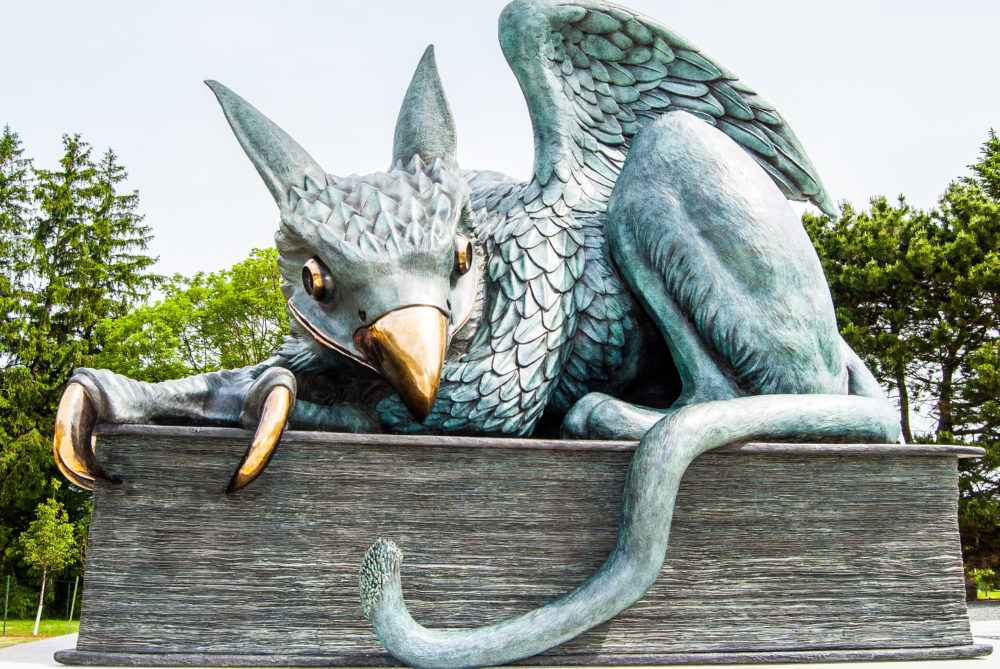 Nine new University of Guelph projects have been awarded a total of $70,000 to explore notions of “Creating in a Time of Coronavirus.”
Nine new University of Guelph projects have been awarded a total of $70,000 to explore notions of “Creating in a Time of Coronavirus.”
The projects support the realization of creative works that speak to the current pandemic, or that build connections between artists and their audiences and communities.
The projects received $27,000 from the University’s Creating in a Time of Coronavirus Fund, with matching support from sources such as departments, colleges and private donors.
“The COVID-19 pandemic is having a profound impact on all aspects of life, and it’s crucial to capture the human dimension through the unique lens provided by creative works,” said Malcolm Campbell, vice-president (research).
The recipients are:
Nadia Amoroso, School of Environmental Design and Rural Development
Prof. Amoroso will begin a project called Datascaping the COVID-19 Landscape at the U of G Campus, which aims to create a series of “datascapes,” or mapping-illustrations, of the U of G campus during the pandemic. The team will develop digital 3D models of social distancing and use parametric methods to visualize the hypothetical safe spaces within outdoor areas at the University campus, such as Johnston Green. These digital models will be visually expressed as two-dimensional datascapes and as 3D-printed sculptural pieces that depict the campus’ safe spaces.
Catherine Bush, School of English & Theatre Studies
Prof. Bush will lead a team of students in the Master of Fine Arts in Studio Art and Creative Writing programs who will produce a digital journal entitled The Meaning of Making Meaning: Systems in Revolt, Systems in Renewal. With the COVID-19 pandemic exacerbating multiple global crises, leading to the growth of social movements demanding solidarity and justice, the journal will prompt artists and writers to respond to the current moment and consider how we connect and interact with one another.
Christian Giroux, School of Fine Art & Music
Prof. Giroux and his partners will develop two virtual reality (VR) environments through the Creating Virtual Spaces for Artists and Performers project that will enable students and researchers to explore and interact with two creative spaces on campus. One will be a VR version of the Zavitz Gallery in Zavitz Hall, used for student exhibitions, which will allow artists to incorporate and exhibit digital sculpture works online. The other will be a 360-degree virtual walk-through of the ImprovLab being built for the renovation of the MacKinnon Building, which will give future performers a first-person perspective of the new space so they can plan performances.
James Harley, School of Fine Art & Music
Prof. Harley received funding for a project entitled Interactive Improvisation in Times of Isolation, which will showcase the realities of living in isolation. Harley’s group will produce a series of 15 short audio-video recordings of individual improvisational responses to ambient recordings (e.g., early morning birdsongs) and responses to each other’s improvisations in lieu of collaborating in person. The ambient recordings signify the current reality in which nature exists — even thrives — with muted human intervention.
Troy Hourie, School of English & Theatre Studies
Prof. Hourie will create ODDITI(m)ES – A Tragic Comedy in Pandemic Times, which will take a comedic look at the frustrations and woes we have all endured over the past months of the pandemic. The work will be derived from personal experiences as well as those shared all over social media.
Peter Kuling, School of English & Theatre Studies
Prof. Kuling and his students will create a 60-minute pilot episode of an original sci-fi detective radio drama series to be entitled A Shot in the Dark: Theatre Ensemble Radio Play The play which will investigate early Canadian space exploration through film noir and science fiction narrative lenses. Inspired by the COVID-19 shutdown, the radio drama takes place at the height of the Spanish Flu epidemic in 1918 after the Canadian military records Morse code emanating through our solar system. A team of film noir-era sleuths are blasted into space who must find a way to end the pandemic.
Kim Martin, Department of History
An extension of the Art Apart project, which showcases the community of Canadian creative making during this pandemic, this new project is entitled Connecting Generations through Journaling. Prof. Martin and her team will distribute 200 blank journals to children from low-income/single-parent households and seniors in long-term care and give them ideas for artwork they could create related to COVID-19. They will then create a digital mosaic and slideshow to be shown on Art-Apart.ca as well as on screens across campus.
Meghan McMurtry, Department of Psychology
Given that two-thirds of children are afraid of needles, some families may choose to delay or refuse vaccinations – including one that might help prevent COVID-19. Through a project entitled Creating bravery, Prof. McMurtry plans to create an illustrated children’s book that could help to mitigate needle-related pain and needle fear in children. The book aims to remove fear as a barrier to vaccination, thus encouraging uptake of a COVID-19 vaccine when it becomes available, which should reduce health-care avoidance and benefit the wider public health.
Alyssa Woods, School of Fine Art & Music
Prof. Woods and her team will create A Sonic Tapestry of Guelph Musicians’ Reactions to COVID-19, which will comprise 10 new short works by Guelph-area musicians. Woods and Prof. Kimberly Francis will commission, curate and contextualize the works, to be performed by U of G faculty, students, and alumni, as well as local professional musicians.